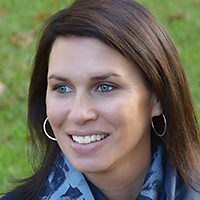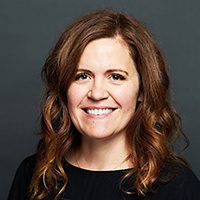PRESENTERS
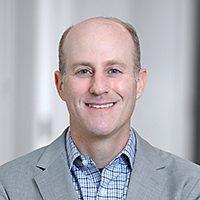
Adam Berger
Moderator
Adam C. Berger, PhD is the Director of the Division of Clinical and Healthcare Research Policy in the Office of Science Policy at the National Institutes of Health (NIH). In this role at NIH, Dr. Berger oversees a wide range of policy issues related to clinical trials, biospecimen research, privacy, bioethics and human subjects protections, and translation of biomedical discoveries. He also serves as a senior advisor to the Associate Director for Science Policy. Prior to joining NIH, Dr. Berger was part of the personalized medicine staff at the U.S. Food and Drug Administration (FDA). In his role at FDA, Dr. Berger addressed a wide range of policy and regulatory issues related to precision medicine, next generation sequencing, real world evidence, and digital health. Dr. Berger also previously served as a Senior Fellow to the Secretary of Health and Human Services, overseeing the development and implementation of the Precision Medicine Initiative (PMI), a precedent setting and transformational medical initiative to accelerate the development of disease treatments by taking into account patients’ individual characteristics, across all operating and staff divisions of the Department of Health and Human Services (HHS). Dr. Berger also served as the main liaison between and representative of HHS to the White House and other United States Government Departments involved in the PMI. Prior to working in government, he was a Senior Program Officer and Director of the Roundtable on Translating Genomic-Based Research for Health in the Board on Health Sciences Policy at the Institute of Medicine (now the National Academy of Medicine). Dr. Berger received his doctorate from Emory University in Biochemistry, Cell and Developmental Biology, his B.S. in Molecular Genetics from The Ohio State University, and completed his postdoctoral training at the National Cancer Institute of the NIH.
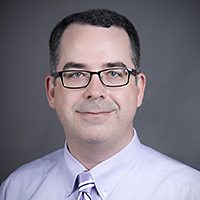
Kyle Brothers
Kyle Brothers, MD, PhD serves as Chief Scientific Officer for Norton Children’s Research Institute in Louisville, Kentucky. He is a Professor of Pediatrics and the Endowed Chair for Pediatric Clinical and Translational Research at the University of Louisville, where he directs the Division of Pediatric Clinical and Translational Research. Dr. Brothers is a pediatrician and bioethicist who conducts research on ethical issues in the translation of genomic technologies to clinical practice. He is a practicing primary care pediatrician and serves as a clinical ethics consultant at Norton Children’s Hospital in Louisville, Kentucky.
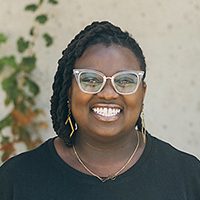
Chelsey Carter
Chelsey R. Carter is an Assistant Professor of Public Health in the Department of Social and Behavioral Sciences at Yale University, with a secondary affiliation in the Department of Anthropology. Her research program examines how scientific knowledge production, clinical care, and systemic marginalization impact historically underrepresented communities affected by rare and neurodegenerative diseases, like ALS. Dr. Carter is also undertaking a book project tentatively titled, Finding the Forgotten: Race, Bias, and Care in the World of ALS, which includes an ethnographic study of the diverse experiences of living with ALS, and draws on over 15 years of experience with Black communities affected by ALS. She is Founder & Director of The LEITH (Lived Experiences Igniting Transformations in Health) Lab – a hub to address “Black invisibility” and misdiagnosis at the intersection of genomic research, ALS, and other rare neurodegenerative diseases, honoring the influential activism and scholarship of Dr. Leith Mullings.
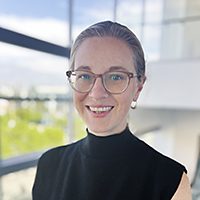
Astrid
Suchy-Dicey
Astrid M. Suchy-Dicey, PhD, Associate Professor, Director Clinical Neurosciences, and Principal Investigator of the Brain Aging Study at HMRI is an epidemiologist dedicated to unraveling risk and etiology in neurodegenerative disease. Her research focuses on the methodology for collecting, analyzing, and interpreting imaging, plasma biomarkers, cognitive testing, and social determinants pertaining to vascular and Alzheimer’s diseases, with a particular interest in health disparities. She leads multiple independent, NIH-funded research aimed at understanding risk and resilience factors in brain aging in American Indians, Alaska Natives, and other marginalized populations. Some of these projects include Plasma phosphorylated tau protein and Alzheimer’s disease in American Indians; Resilience, cultural alignment, social support, and brain aging; Psychological factors, community, and brain aging; Bilingualism as a protective factor of Alzheimer’s disease and related dementias (ADRD). Dr. Suchy-Dicey also holds leadership positions at University of Washington (UW) Alzheimer’s Disease Research Center, Washington State University (WSU) Institute for Research and Education to Advance Community Health, and with the Strong Heart Study cohort. Dr. Suchy-Dicey earned her MS and PhD in epidemiology at the University of Washington, with dual concentrations in Public Health Genetics and Quantitative Methods. She has a background in molecular pathology, and advanced certification in machine learning. Her research interests include: epidemiology of chronic diseases related to aging; complex systems of balance in human physiology; health disparities in U.S. minority populations.
